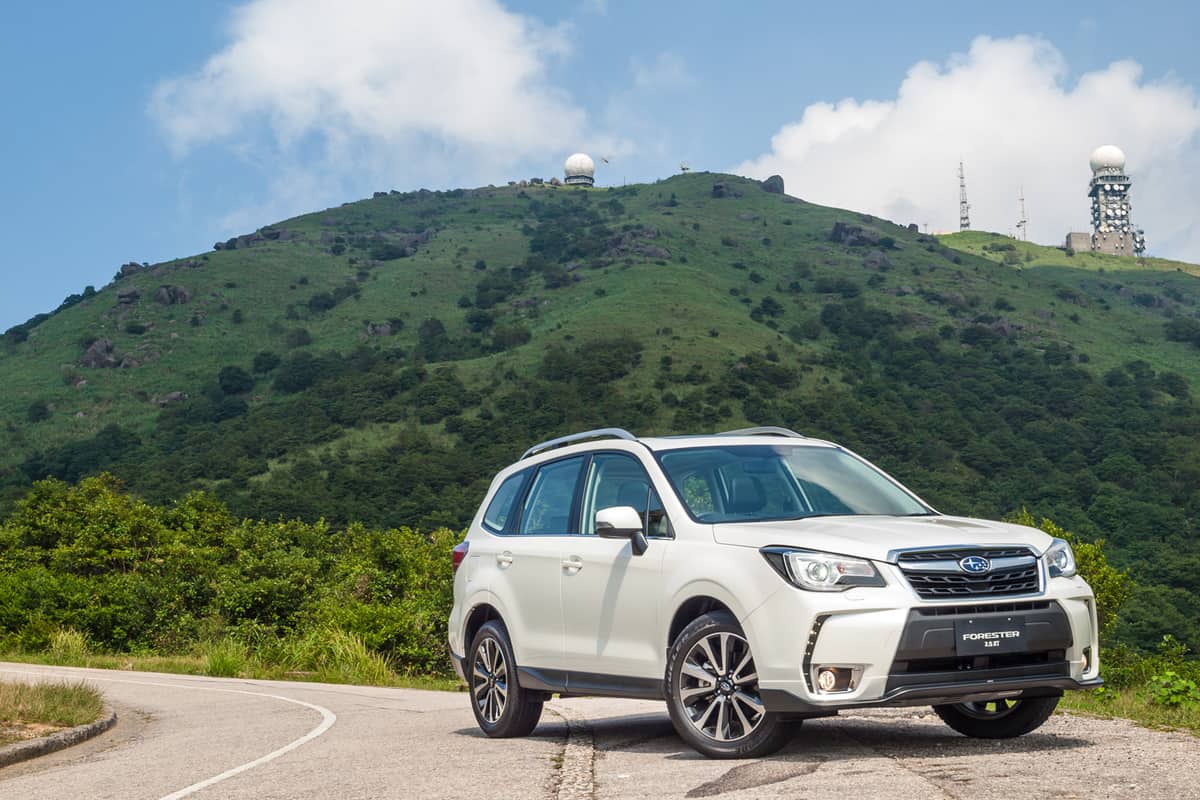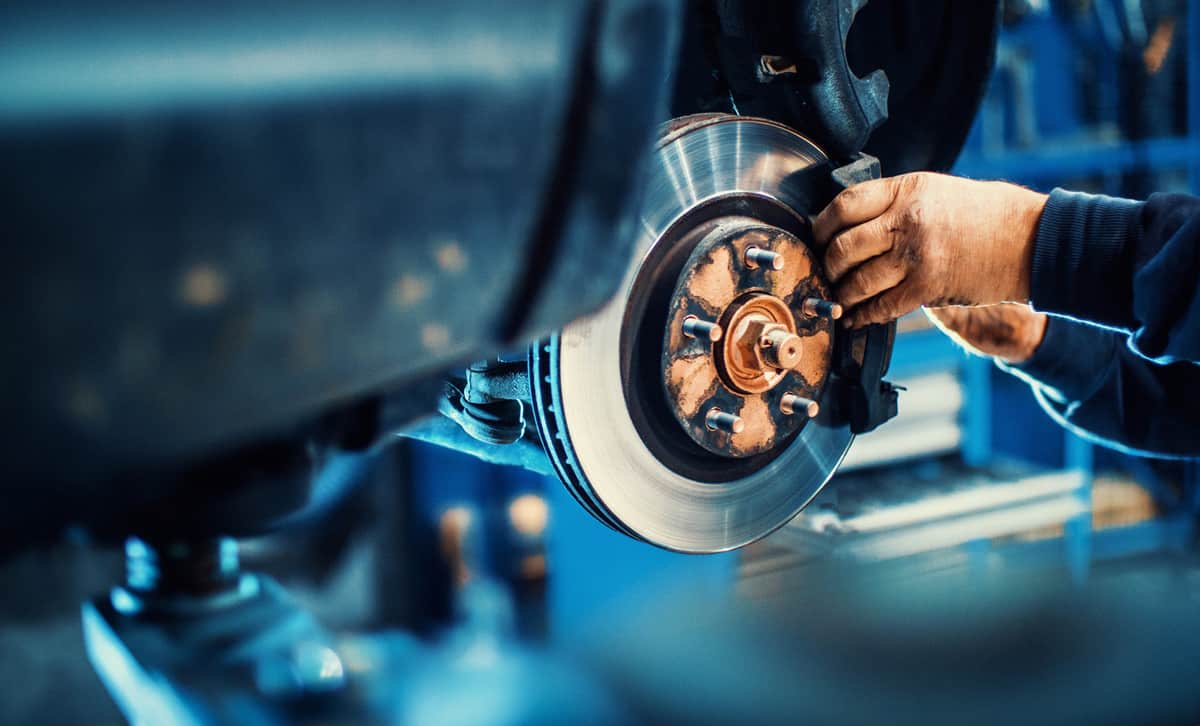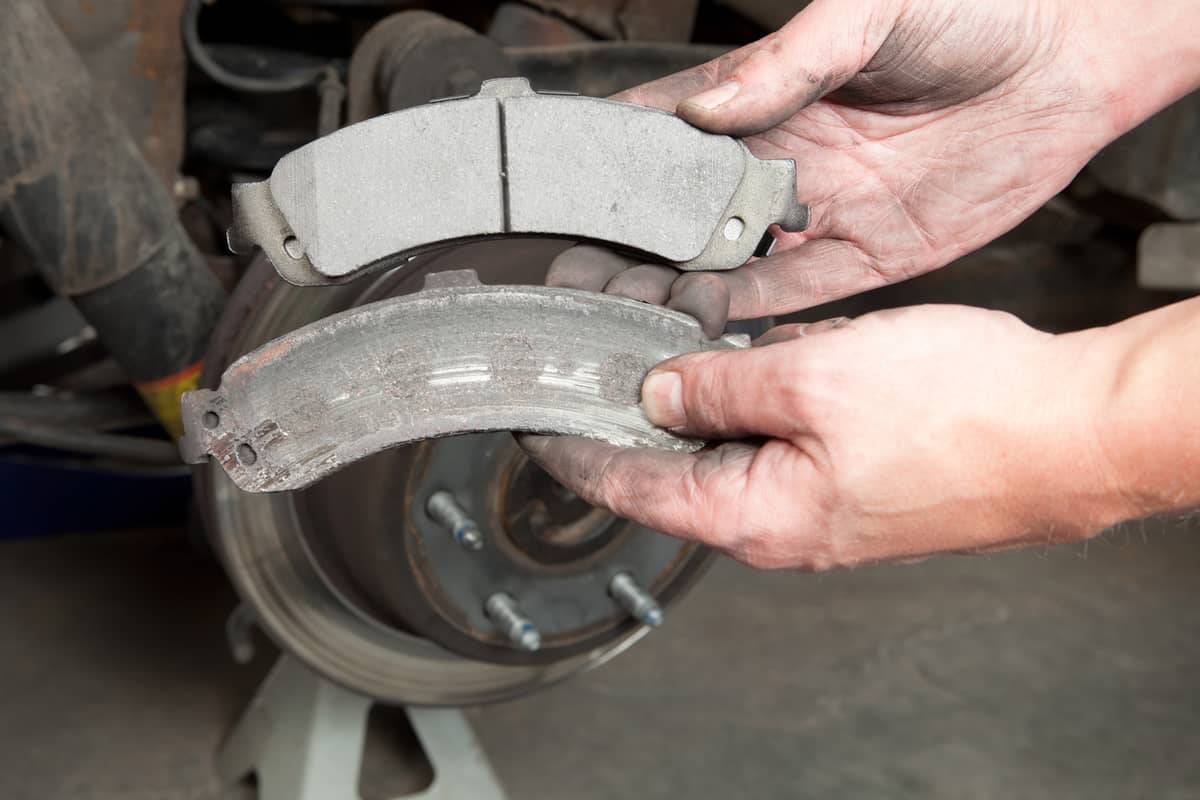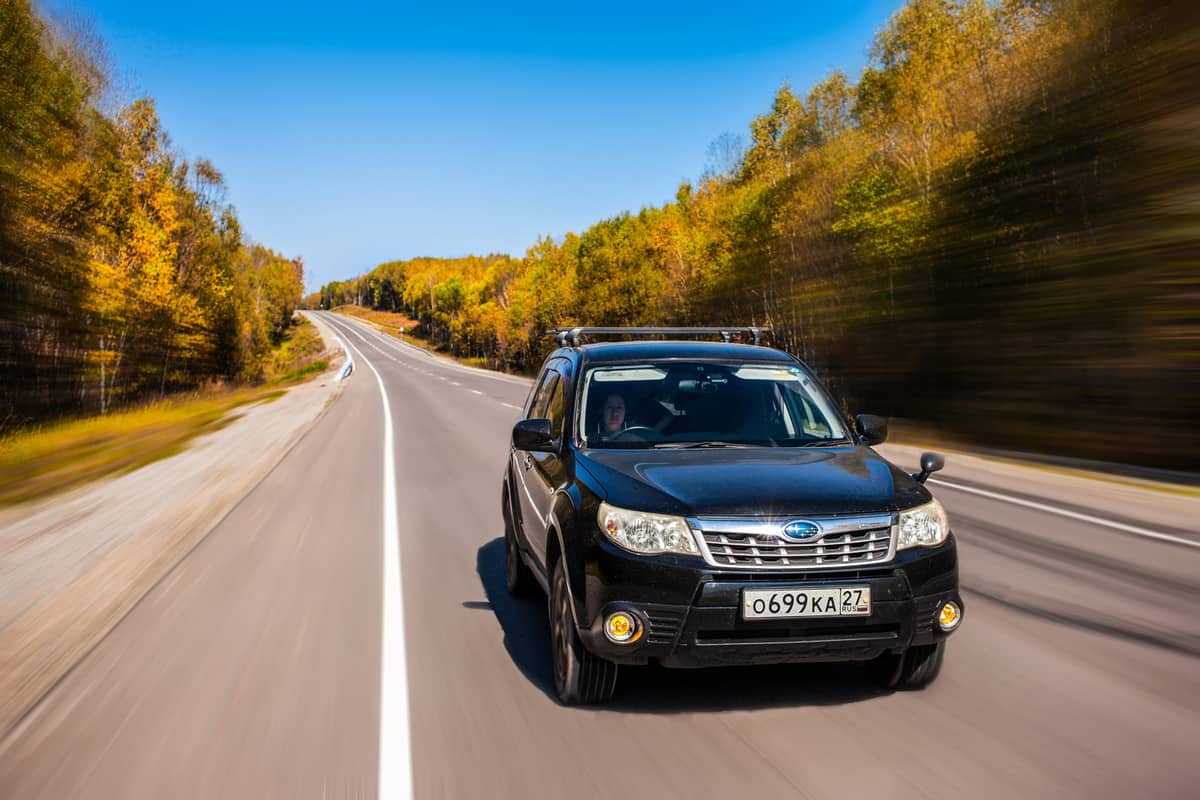Whether you own a Subaru Forester or any other vehicle, taking care of your brakes is crucial to your safety on the road. So how long can you expect the Subaru Forester brakes to last? Let's take a look.
Depending on your driving habits, you can expect your Subaru Forester brakes to last 30,000 to 70,000 miles. If you do a lot of stop-and-go driving in the city, your brakes will wear down more quickly than if you mostly drive on highways.
Like many mechanical parts on a vehicle, driving habits can affect how long the brakes last. This article will discuss how to get the most out of your brakes. In addition, we will answer other frequently asked questions about the Subaru Forster brakes, so read on!

How often do Subaru Foresters need new brakes?
The lifespan of the Subaru Forester brakes can vary significantly, depending on your driving habits. If you drive primarily on highways or in low-traffic areas, you can expect the brakes to last up to 70,000 miles before needing to be replaced.
However, if you do a lot of stop-and-go city driving, your brakes may need to be replaced sooner, typically around 30,000 miles.
Several factors can affect the condition and lifespan of your brakes, including driving conditions, wear and tear, and brake maintenance.
To ensure that you get the most out of your Subaru Forester brakes, follow regular maintenance schedules and take your vehicle in for regular brake inspections. Additionally, if you notice any wear and tear on your brakes, such as squeaky or grinding noises when braking, it's best to have them inspected by a mechanic.
As with any other vehicle part, taking good care of your Subaru Forester brakes is the key to getting the most out of them and keeping you safe on the road. So be sure to follow regular maintenance schedules, drive carefully, and regularly inspect your brakes to enjoy many miles of worry-free driving with your Forester!
There are some simple tips you can follow to help mitigate the effects of wear and tear, such as:

Avoid high-speed braking
Avoid slamming on the brakes when driving on the interstate or other high-speed roads.
Instead, make gradual stops to prevent unnecessary wear and tear on your brakes.
Coast instead of braking
When approaching a stop sign or red light, take your foot off the gas pedal and coast towards the stop.
This will help conserve your brakes and prevent unnecessary wear if you can shift down to a lower gear and let the engine slow the car down.
Flush your brakes every two years
Most auto manufacturers recommend that you flush your brakes every two years to prevent corrosion and keep them in good condition.
Give other vehicles room
In heavy traffic, it's important to give other vehicles room to stop if they need to brake suddenly.
This will help you avoid having to slam on your brakes, which can cause premature wear.
Remove unnecessary weight
If you're carrying around the extra weight in your vehicle, it can strain the brakes and cause them to wear down more quickly.
So if you're not using certain items, such as a bike rack or cargo box, be sure to remove them from your vehicle to reduce the strain on your brakes.
By following these simple tips and scheduling regular brake inspections, you can get the most out of your Subaru Forester brakes and enjoy safe and worry-free driving for many years to come.
How much do new brakes cost for a Subaru Forester?
The cost of new brakes for a Subaru Forester can vary depending on the type of brakes you need and where you get them.
However, on average, you can expect to pay between $300 and $600 for a complete set of new brakes.
This price includes both the cost of the parts and the labor to install them.
If you need to have your brakes repaired or replaced, take your vehicle to a qualified mechanic who can properly diagnose the issue and make the necessary repairs.
Attempting to repair your brakes on your own can be dangerous and may void your warranty, so it's always best to leave it to the professionals.

When should I have my brakes inspected?
You should have your brakes inspected at least once every six months or more often if you notice any issues.
Some signs that you may need to have your brakes inspected include:
- Squeaking or grinding noises when braking.
- Brakes feel "spongy" or "soft" when applied.
- The vehicle pulls to one side when braking.
- Brake pedal is lower than usual.
If you notice any of these issues, be sure to take your vehicle to a mechanic as soon as possible for an inspection.
Attempting to drive with faulty brakes can be dangerous and may result in an accident.
Can I just replace brake pads and not rotors?
Yes, it is possible to replace just the brake pads and not the rotors if you are experiencing wear or damage to only the pads.
However, in most cases, it is recommended that both the pads and rotors be replaced simultaneously to prevent uneven wear and ensure optimal stopping power.
Typically, rotors will last 70,000 miles or more before they need to be replaced. However, this can vary depending on driving habits and the type of roads you drive. A good rule of thumb is to replace the rotors every 1-2 times you have replaced the brake pads.
If you aren't sure whether or not you need new brakes, take your vehicle in for an inspection so a qualified mechanic can properly diagnose the issue.

Do front or rear brake pads wear faster?
In general, however, it is believed that front brake pads typically wear faster than rear brake pads. This is because the front brakes are subjected to much higher levels of stress and heat than the rear brakes, which results in faster wear.
Nonetheless, you should still replace all of the brake pads simultaneously to ensure even wear on all of the brakes.
The same goes for the rotors – be sure to replace all of them simultaneously; otherwise, you may end up with uneven wear and reduced stopping power.
Is it worth changing your brakes yourself?
It is not recommended that you change your brakes yourself in most cases. This is because brakes are a crucial safety feature on your vehicle and need to be installed correctly to work properly.
Changing your brakes is more complicated than doing your own oil change. It takes special equipment and knowledge to ensure that the job is done safely and correctly. If you do the brake change incorrectly, you risk damaging other components and putting yourself at risk of being in an accident. Therefore, it is always best to leave it to the professionals.
How should you drive after replacing brakes?
After brakes are replaced, you will need to bed them in. This is a process of breaking in the new brake pads and rotors, so they work properly.
The best way to bed in brakes is to do it gradually over a few days. Start by driving slowly and applying light pressure to the brakes. In the first 500 miles, it's important to be easy on your brakes. Try not to work your brakes hard.
For example, if you are driving at higher speeds, try to give yourself plenty of time to brake. Hard braking at high speeds in the first 500 miles could overheat the new brake pads, causing squeaking.
You should always drive with caution during this process. It only takes one hard stop to cause damage to the new brakes if they haven't been properly bedded in yet. Once you have bedded in your brakes, you can continue driving as usual. You should see improved stopping power and performance from your newly replaced brake system.

Final Thoughts
If you are having any issues with your brakes, then take your Subaru Forester to a qualified mechanic for an inspection as soon as possible. Brakes are a crucial safety feature on your vehicle and should never be ignored or taken lightly. If you need to replace your brakes, be sure to do all four at the same time to prevent uneven wear and ensure optimal stopping power.
Made it to the end? Here are other articles you might enjoy:
Do All Cars Have Front And Rear Brakes?
